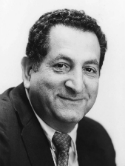| Abstract: |
The response rate (RR) to single-agent chemotherapy with doxorubicin or ifosfamide in patients with advanced soft-tissue sarcoma (STS) is in the range of 20%. Paclitaxel is clinically useful in treating several solid tumors and has demonstrated activity in a series of human sarcoma cell lines. Twenty-eight patients with measurable advanced STS participated in this phase II trial of paclitaxel at 250 mg/m2 administered as a 3-hr i.v. infusion once every 3 weeks. All patients received granulocyte colony-stimulating factor (G-CSF) beginning on the day after paclitaxel and lasting until recovery from neutropenia. No prior chemotherapy had been used in 17 patients; 10 patients had had prior doxorubicin-based therapy; and 1 patient had had intraperitoneal therapy with edatrexate. Two partial responses (PRs) (7%; 95% confidence interval [CI] = 1-23%) were observed. The responding patients included a patient with angiosarcoma of the scalp who had complete regression of cutaneous lesions and improvement of nonmeasurable pulmonary disease lasting 6 months. The other PR occurred in a woman with metastatic uterine leiomyosarcoma and lasted 9 months. Seven patients had stable disease for 3-4 months. Median time to progression for all patients was 3.5 months (range: 2.5-9 months). The mean nadir in the white-blood-cell (WBC) count was 3.8 X 103/μl (range: [0.2-16.2] x 103/μl), with a mean nadir in the absolute neutrophil count (ANC) of 2.4 x 103/μl (range: [0.0-7.1] x 103/μl). Three patients died while in the study. Two patients with angiosarcoma of the scalp who did not qualify for this study were treated with paclitaxel off protocol, and experienced dramatic tumor regression. The overall response to paclitaxel observed in this heterogeneous group of patients was disappointing. However, the activity seen in angiosarcoma of the scalp suggests that further evaluation is warranted in patients with STS. |








